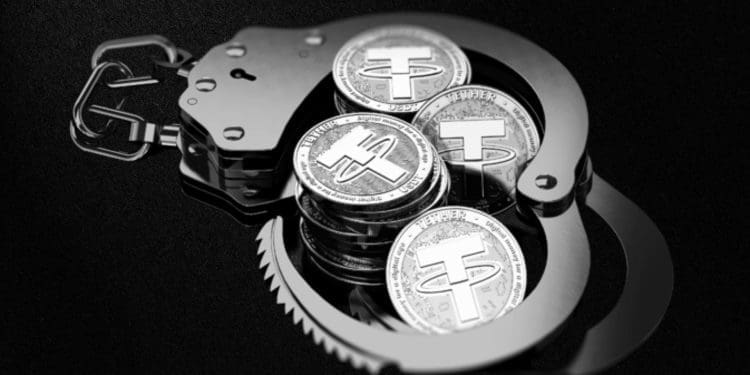- Tether froze $225 million in USDT linked to an Asian human trafficking ring following an investigation with the DOJ and crypto exchange OKX.
- The asset freeze highlights Tether’s cooperation with law enforcement to crack down on illicit crypto activities.
- Tether’s CEO said the freeze underscores their dedication to fostering a secure crypto environment through collaborating with authorities worldwide.
Tether, one of the largest stablecoin issuers, has frozen around $225 million worth of USDT tokens as part of an investigation by the U.S. Department of Justice into an Asian human trafficking ring. The move highlights Tether’s cooperation with law enforcement to crack down on illicit crypto activities.
Details of the Tether Asset Freeze
In November 2022, Tether announced it had worked with the DOJ and crypto exchange OKX to freeze $225 million worth of USDT held in self-custodied wallets. The funds were allegedly used by a Southeast Asian crime syndicate running “pig butchering” romance scams to con victims.
Tether said the asset freeze followed months of investigation between itself, OKX, the DOJ, and U.S. law enforcement agencies. The firm will work with authorities to unfreeze any lawful wallets improperly seized.
Tether’s Commitment to Compliance and Security
Tether’s CEO Paolo Ardoino said the asset freeze underscores their dedication to fostering a secure crypto environment through collaborating with law enforcement worldwide. He believes leveraging relationships with exchanges like OKX is key to proactively addressing illicit activities.
This is not Tether’s first time freezing funds at the request of government agencies. However, the $225 million freeze appears to be the largest in the firm’s history as it continues to set new standards for compliance.
Conclusion
By working closely with global regulators, Tether aims to promote integrity and safety in the expanding crypto industry. The recent cooperation with the DOJ highlights the company’s commitment to transparency and preventing the abuse of its stablecoins. However, critics argue frequent asset freezes also point to risks associated with centralized control.














